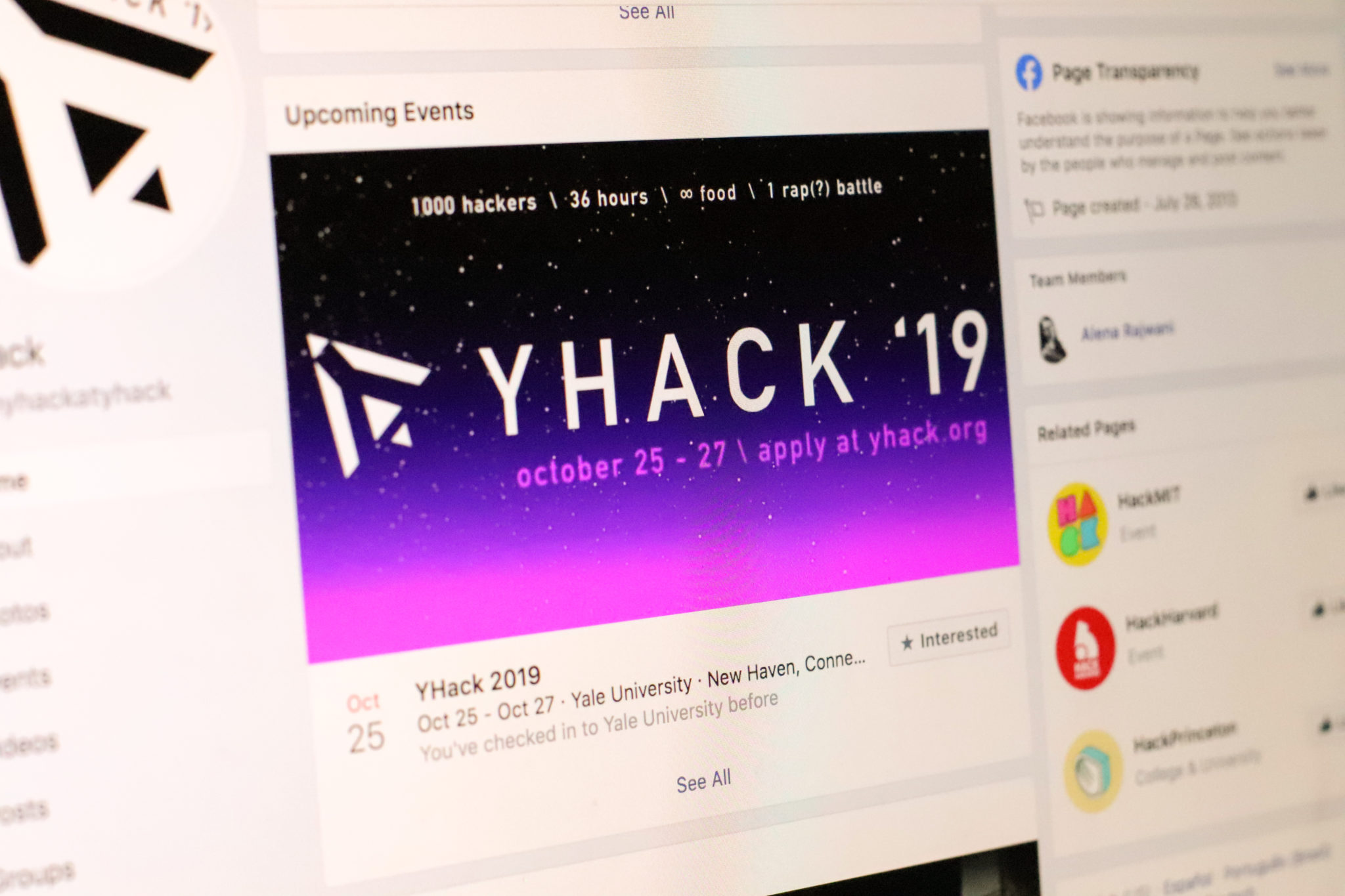
Jazmin Lopez
Hundreds of hackers will soon flood Yale’s campus, but there is no need to fret. These tech enthusiasts are not here to steal Instagram passwords but are participating in YHack 2019.
This weekend, YHack will host its seventh annual “hackathon” — a 36-hour event open to undergraduate students. 800 undergraduates from all over the country — and some international students — are slated to attend the event. Teams of up to four people will complete technical projects to address specific challenges or create programs based on individual inspiration. In this context, hacking is not nearly as malicious as its usual connotation, according to YHack Co-Director William Hu ’21.
Rather, “hacking refers to putting something together in a limited amount of time that is presentable and solves a problem,” Hu said.
Participants are slated to arrive at Yale on Friday, when they will attend a brief opening ceremony, eat dinner and then begin hacking. Teams will have a full day-and-a-half to address as many assigned challenges as they want, and sponsors will award prizes to the teams that they feel have best addressed the tasks.
In addition, YHack will award a grand prize of $1,000 to the team whose project best measures up to its judging criteria, which accounts for a project’s practicality, degree of completion, complexity and creativity.
To attend YHack, students have to fill out an application and receive an acceptance letter. While the event welcomes beginners and encourages students to attend as a means of developing their skills, YHack organizers look for students with a diversity of interests and experiences to balance attendance. While there is an application process for students outside of the University, all Yale students are automatically admitted.
For Erik Boesen ’23, YHack will serve as an opportunity to explore new project ideas and develop programs that he would not ordinarily have the time to create.
“The thing I’m definitely looking forward to is having the time to dig in deep and get my ideas off the ground,” Boesen said. “Hackathons are so much fun. It’s like a sports event for nerds.”
Isaac Robinson ’21 and Brandon Canfield ’21 formed a team in last year’s event. Together, they created a smartphone program that aims to determine intoxication levels by measuring pupil dilation in response to flashing lights. This program simultaneously implements iris-based identity verification, which could help combat drunk driving.
For this project, Robinson and Canfield placed in the top five, earning an honorable mention.
“Hackathons are very special,” said YHack Co-Director Alice Wu ’21. “You don’t get this sort of environment anywhere else. Here, you are working with people to build something really great under a massive time crunch.”
With guest speakers, networking events, free food and gifts and other undergraduate hackers from across the country, YHack provides participants with much to anticipate. Wu even hinted at a potential Super Smash Bros. tournament.
“The hackers should look forward to the energy of the event,” said YHack Co-Director Alan Chen ’21. “You are surrounded by all of these super smart people from all around the world, and you feed off that energy. It’s cool to be in a place where everyone wants to make projects to make the world better.”
YHack, which has an annual budget of $100,000 raised entirely through sponsorship, will take place from Oct. 25 to Oct. 27.
Julia Bialek | julia.bialek@yale.edu







